Scope 12 Inspection
Proven expertise, professionalism, and reliability
Are you looking for Scope 12 expertise to ensure the safety, quality, and insurability of your solar panel installation?
Our certified Scope 12 inspectors conduct in-depth assessments to identify potential risks, ensure compliance with safety standards, and enhance your insurability.
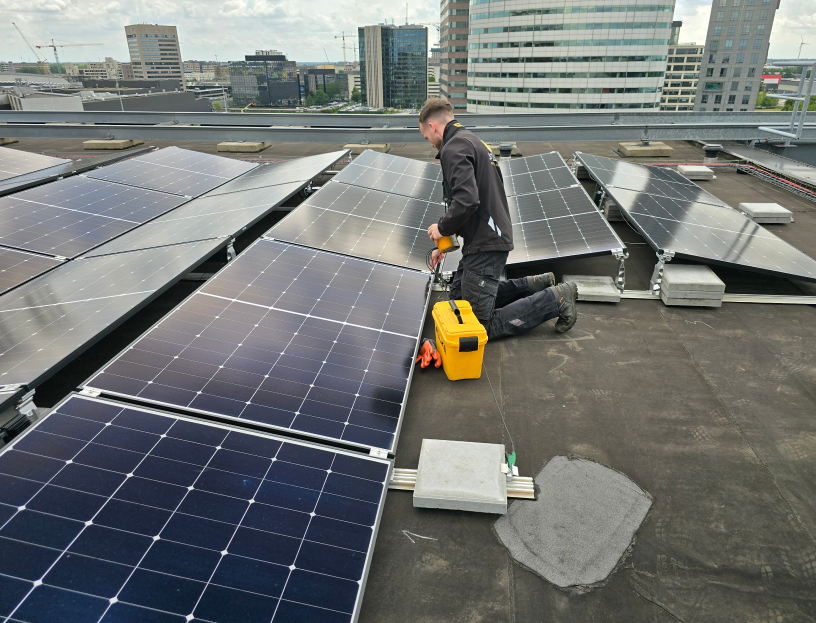
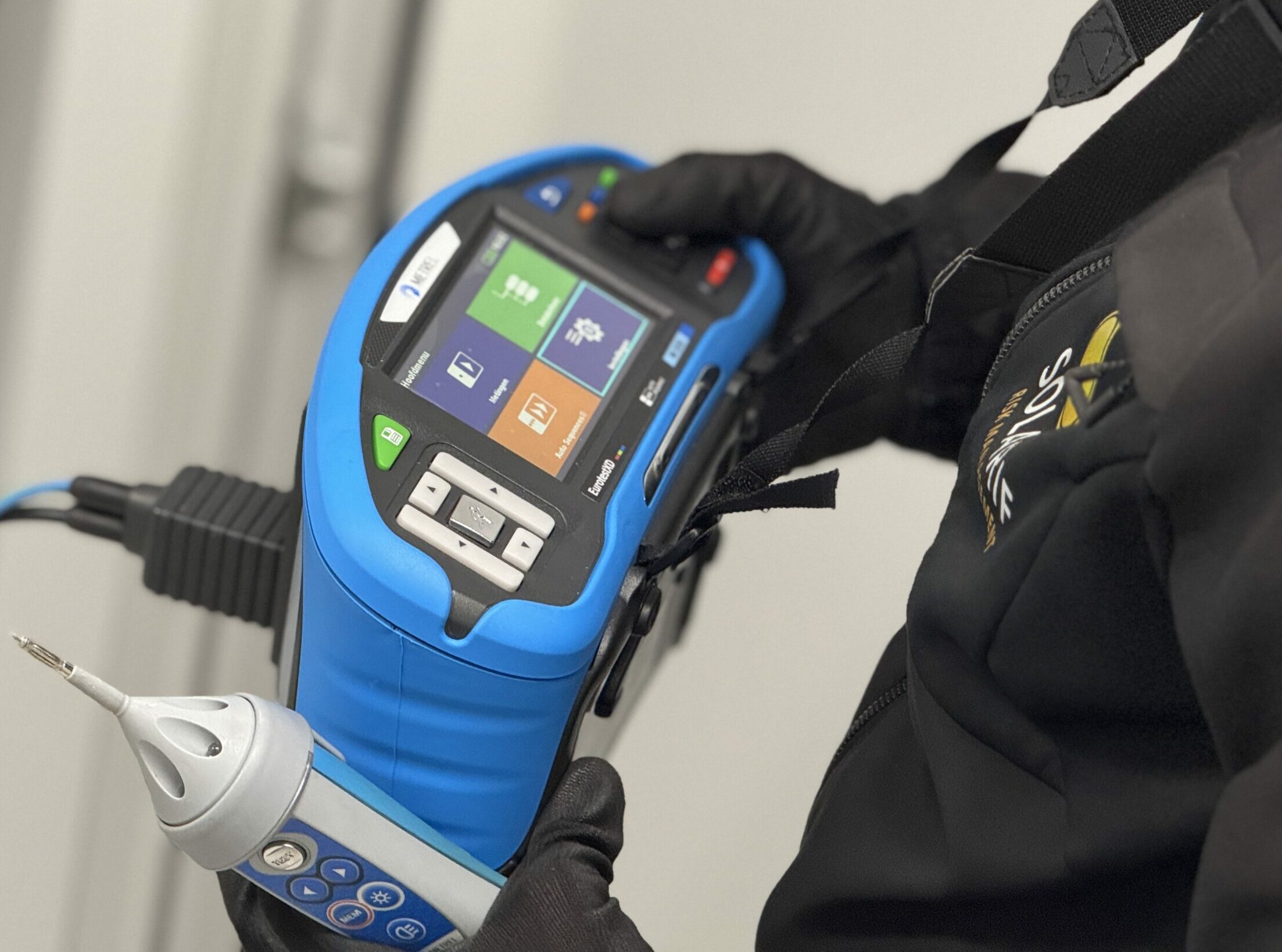
What is Scope 12 inspection?
A Scope 12 inspection is a specialised inspection of the complete PV installation and focuses primarily on fire safety and the technical condition of the installation.
A certified SCIOS Scope 12 inspector carries out this inspection according to the Scope 12 guidelines, which are based on NEN 1010, NEN 3140 and SCIOS Technical Document 18. This standard has been specially developed to assess both the fire risk and technical safety of PV installations.
A Scope 12 inspection helps to minimise safety risks and ensure insurability.
Scope Inspections and NEN 3140: Focus and Requirements
| Inspection | Focus on: | Legally required? | Requirement insurer? |
| Scope 8 | Safety and maintenance of installations | Yes, for certain sectors | No |
| Scope 10 | Fire safety of electrical installations | No | Yes, often required for property insurance |
| Scope 12 | PV (solar panel) installations | No | Yes, often for insurability |
| NEN 3140 | Safe working with electricity | Yes, for employers | No |
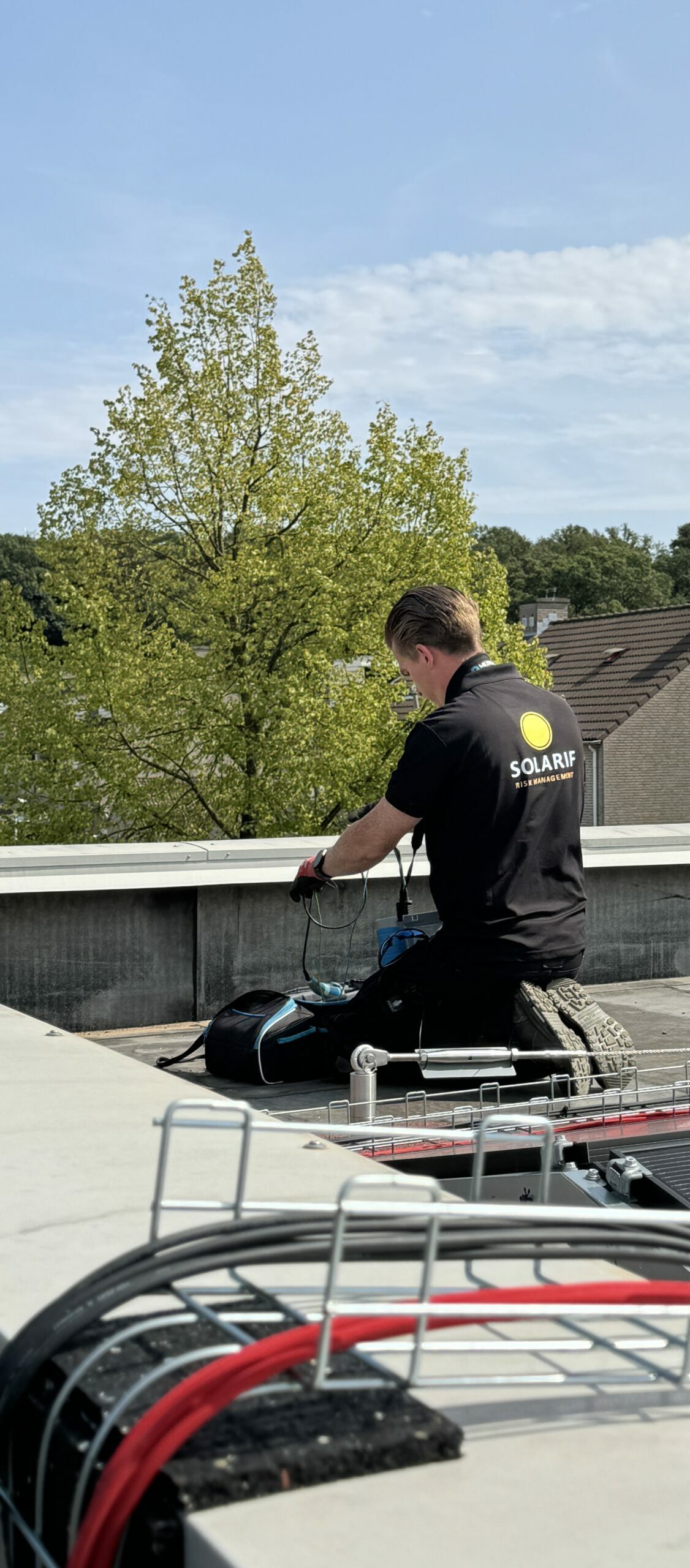
Why a Scope 12 Inspection?
A SCIOS Scope 12 inspection provides a thorough assessment of your solar PV installation, identifying potential risks, ensuring compliance with safety standards, and supporting insurability.
The detailed inspection report delivers clear insights into the condition of your installation, including key observations and necessary actions to meet the requirements.
With this complete understanding of your system’s quality and safety, you can protect your investment with confidence and ensure long-term reliability.
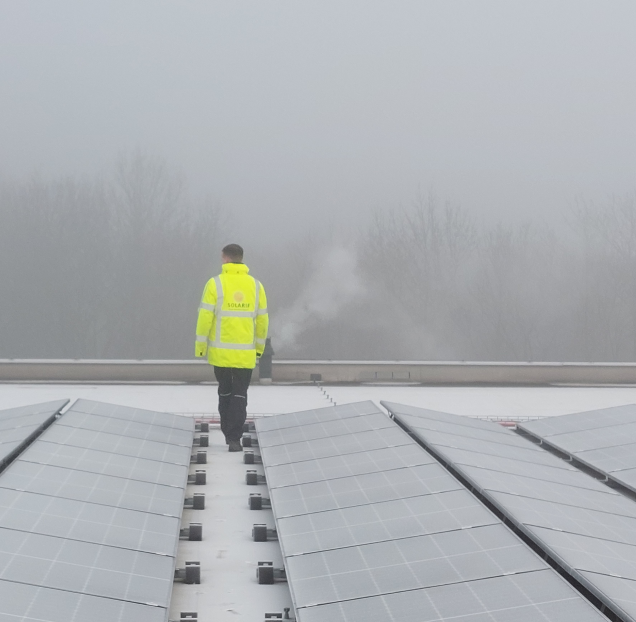
Scope 12 inspection
First special inspection (EBI)
The EBI, similar to a NEN1010 initial inspection, primarily focuses on installation quality and safety. It checks whether the installation meets the applicable standards, complies with manufacturer’s instructions, and meets required safety levels.
Periodic inspection (PI)
The PI is usually carried out every 5 years and checks whether the risks of the solar installation have remained unchanged or are within the established margins.
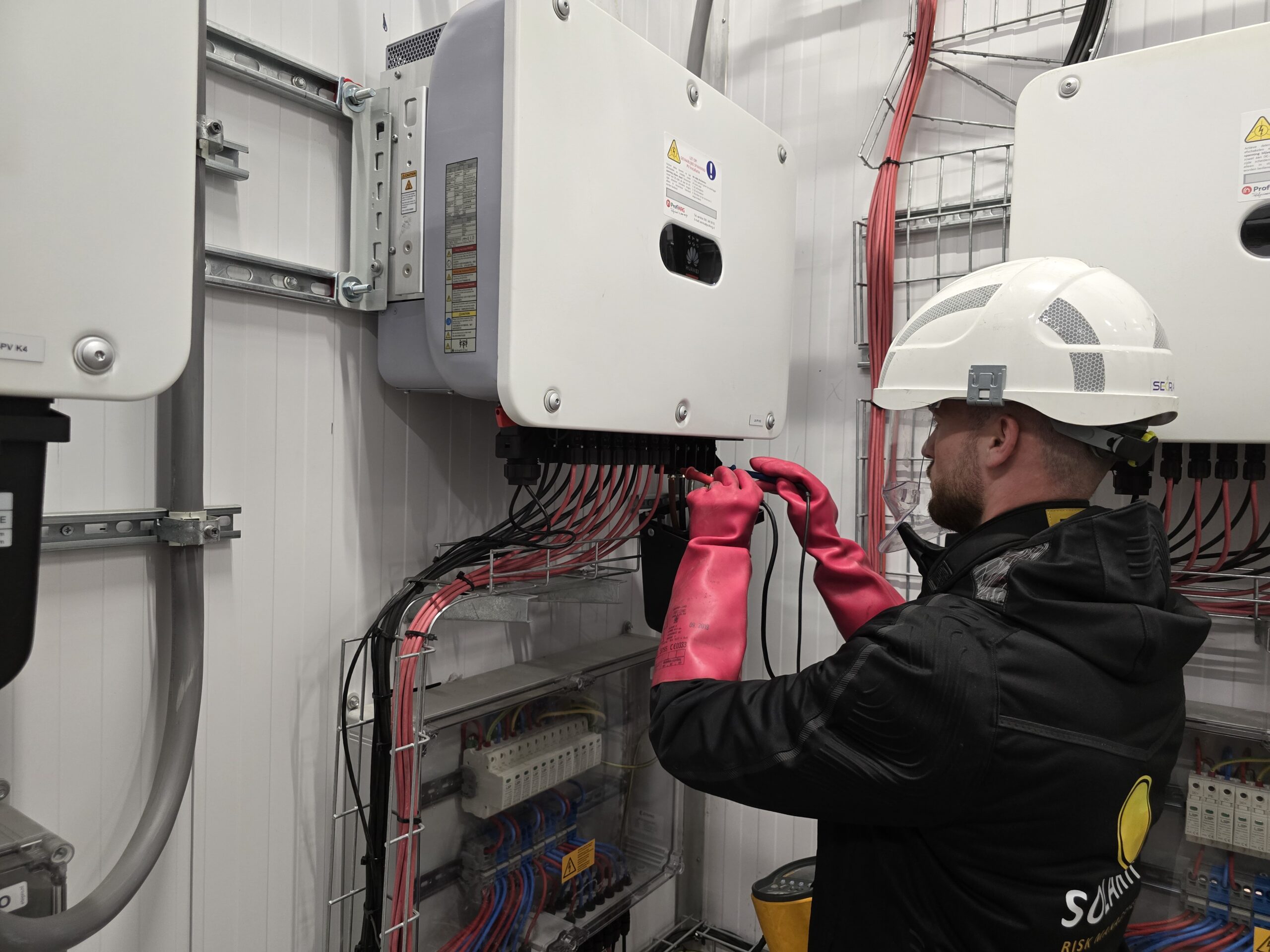
Who Needs a Scope 12 Inspection?
Businesses & property owners
Guarantee fire safety and meet insurance requirements.
Solar park operators & investors
Protect your investment and minimise risks.
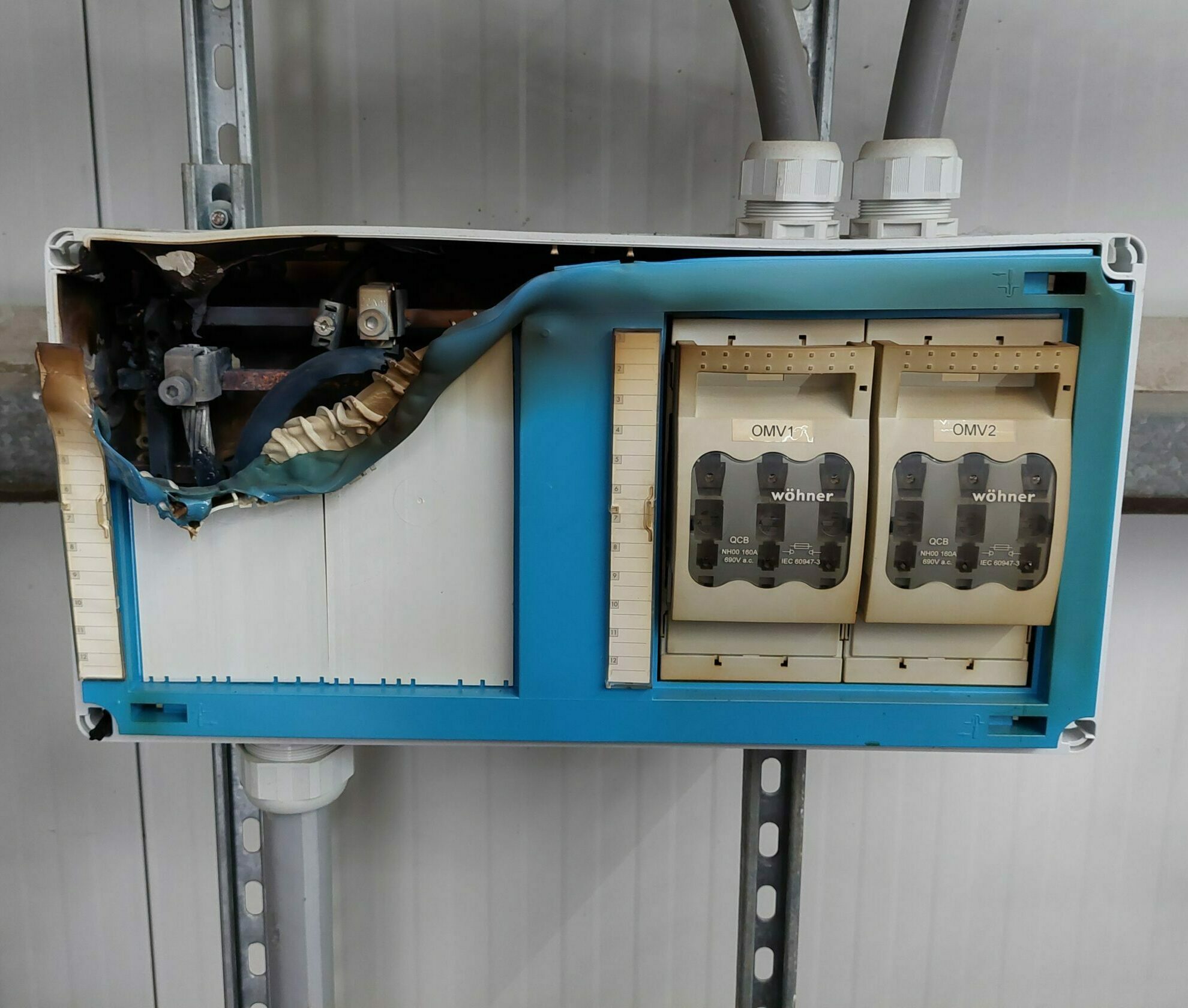
What Does a Scope 12 Inspection Include?
- Visual inspection
Inspection of PV plant components and operations. - Measurements and tests
Checking insulation resistance, string voltages and leakage currents. - Risk analysis
Assessment of e.g. load-bearing capacity of roof structure. - Inspection report
Clear findings and recommendations.
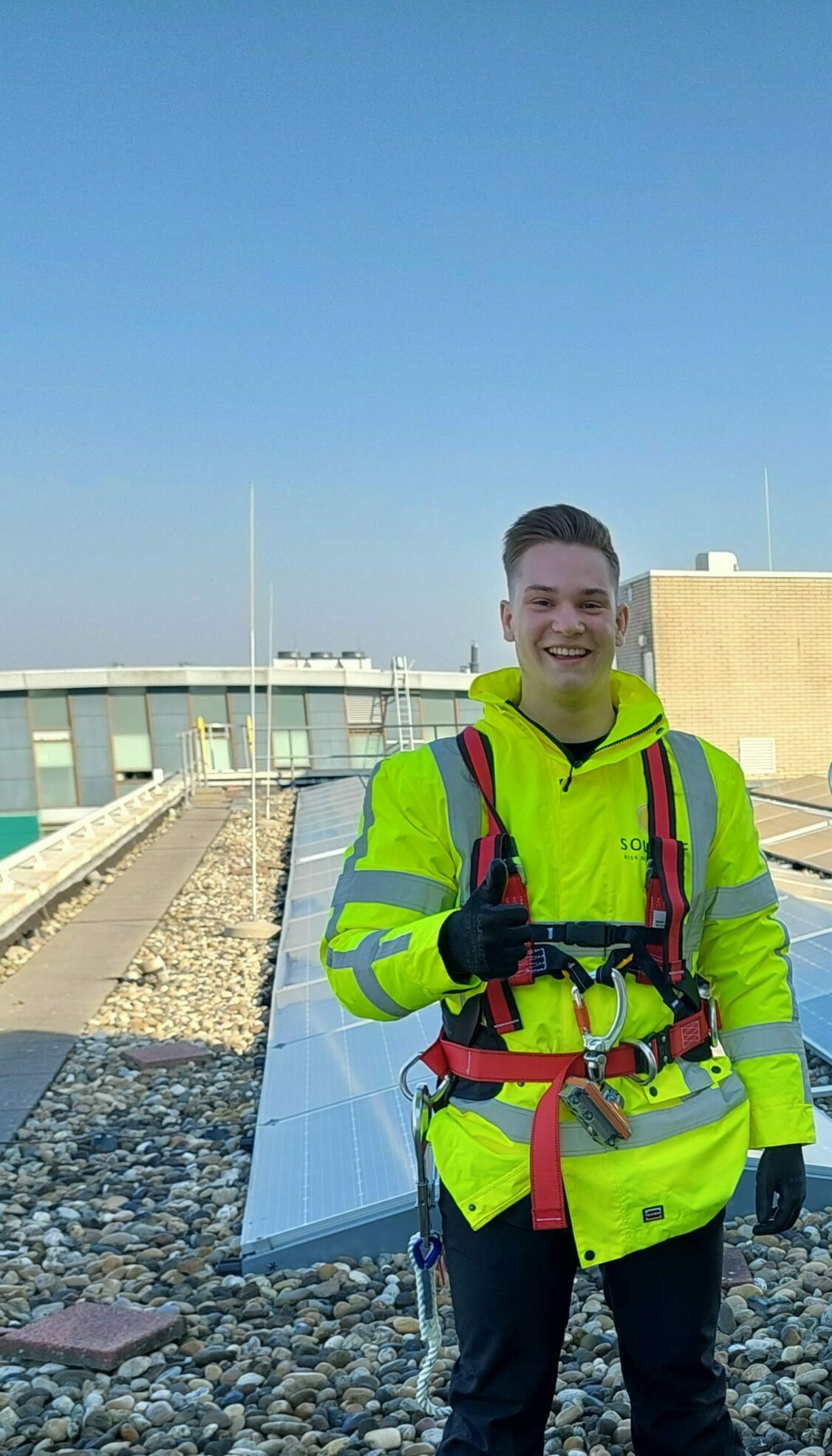
What customers say about us!
Solisplan
Thanks to the knowledge and expertise of Solarif, we can provide our customers with an Scope 12 inspection for the entire solar installation as well as advice on the right insurances. This is a good addition to ensuring our quality.
Solarpartners
We have been working with Solarif for years to our full satisfaction regarding insurance. We are pleased that they have expanded their service package with Scope 12 inspections, so we have only one contact point in the aftercare and O&M phase.
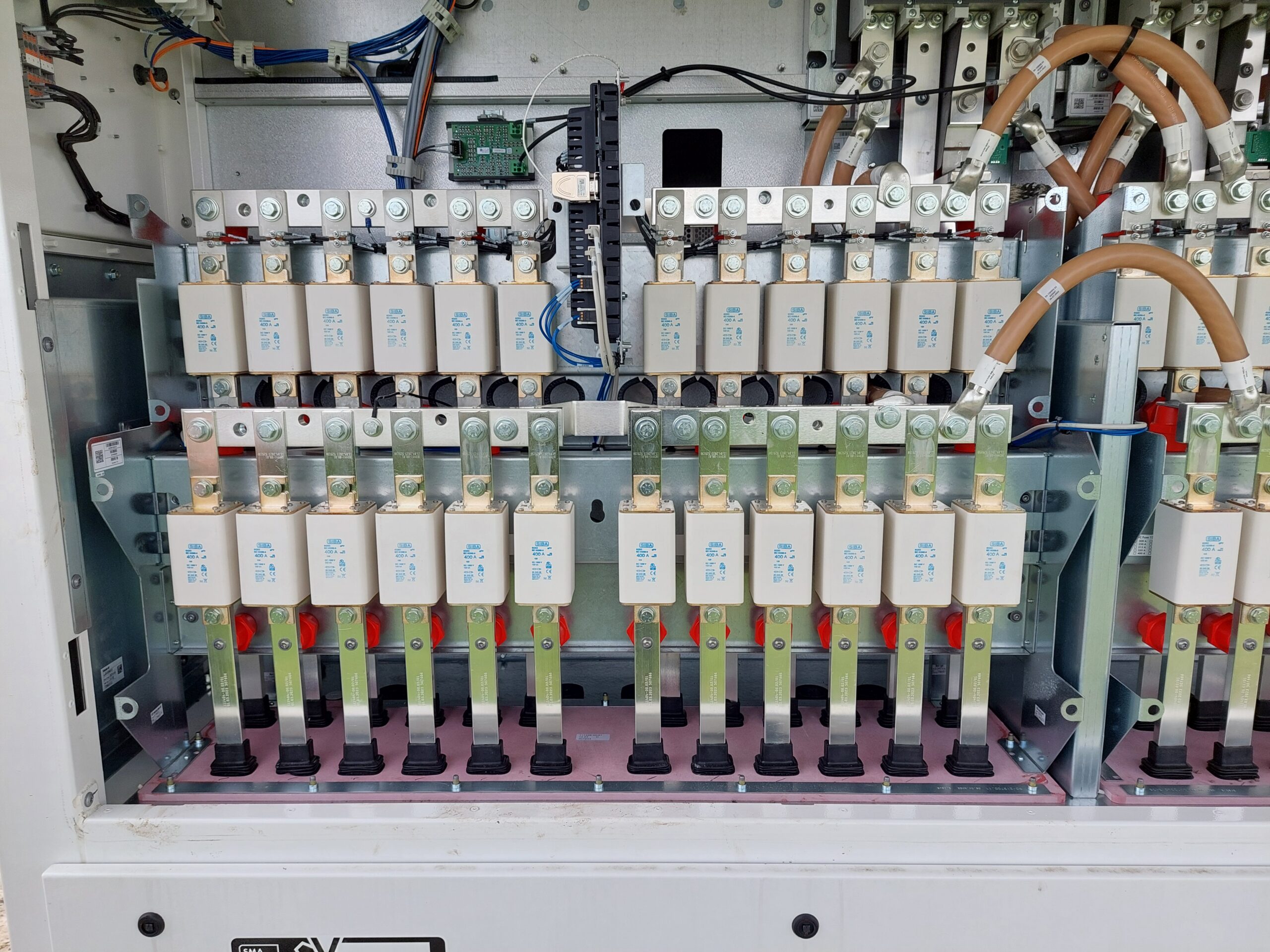
How does a Scope 12 inspection work?
- Preparation: Submit necessary information.
- Inspection plan: A plan is drawn up as the basis for the inspection.
- On-site inspection: Inspection of installations.
- Reporting: Findings and recommendations.
- Repairs: Carry out any repairs to improve fire safety.
- Re-inspection: If necessary, reinspection after repairs.
- Sign-off: Sign-off in the SCIOS portal with or without findings.
- Passed: You receive your Scope 12 certificate.
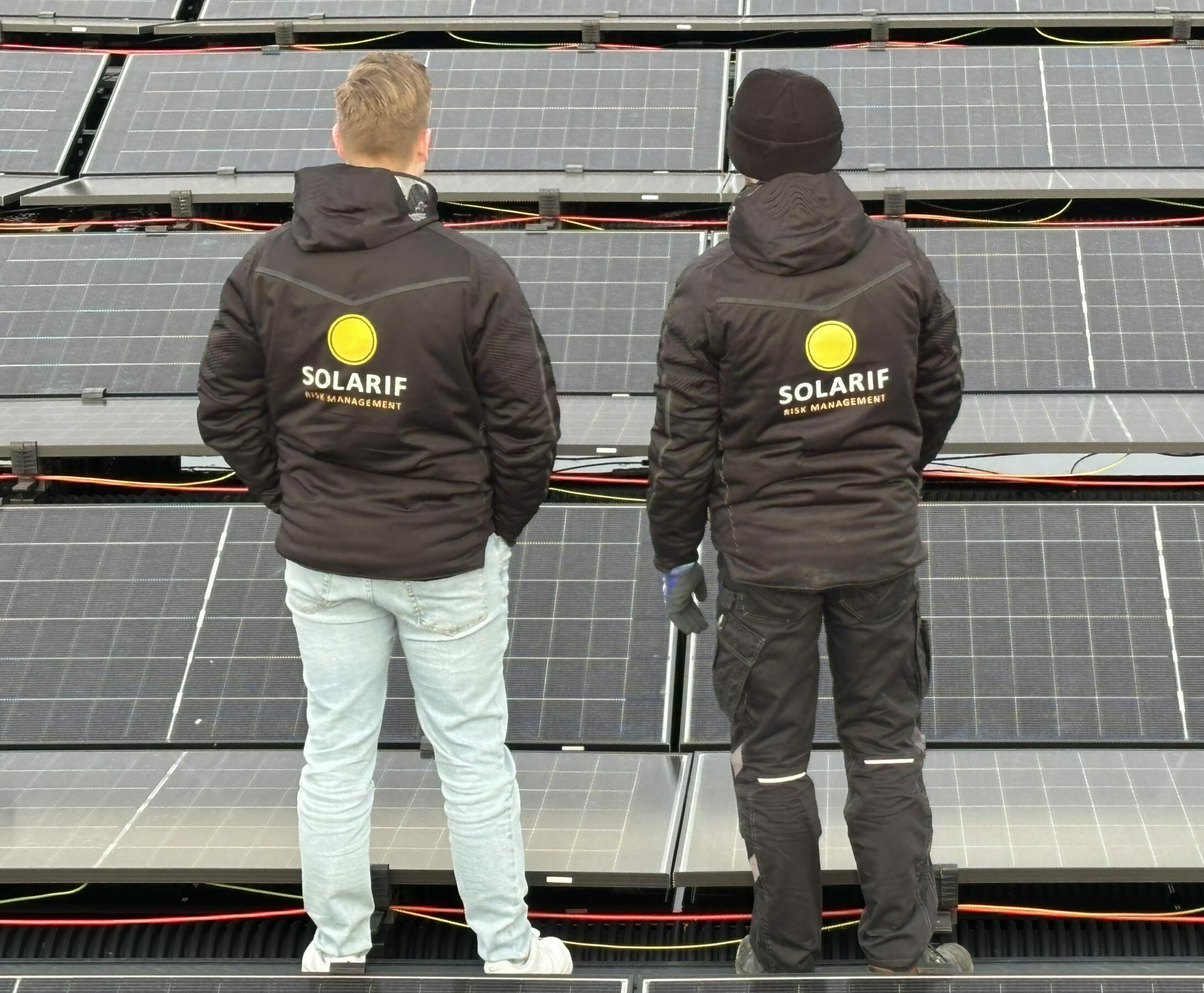
The Scope 12 Musts!
Our certified inspectors perform a detailed inspection that safeguards the crucial safety aspects of your PV installation. Whether it’s ensuring the correct placement of ballast according to the ballast plan, preventing voltage loss through proper inverter settings, or carefully separating and securing DC cables – every detail matters.
Discover the 12 essential focus points for a safe and insurable PV installation. By giving these points the right attention, you significantly increase the chances of passing the inspection without findings, minimizing the risk of rejection.
Download the document “The Scope 12 Musts!” now and make sure your PV installation meets the highest safety standards.
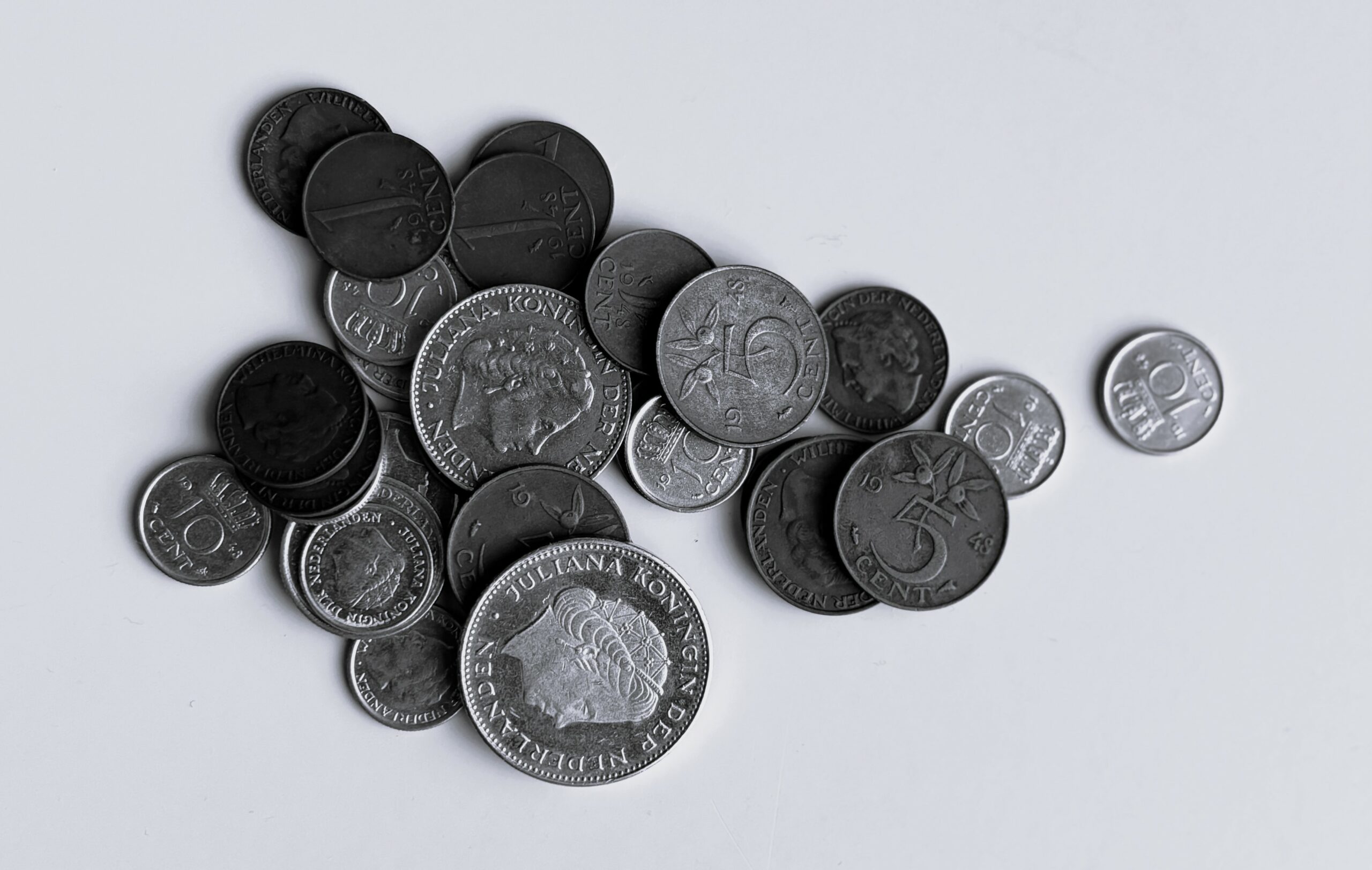
What does a Scope 12 inspection cost?
The cost depends on several factors:
- Type and size of the installation
Larger solar farms or complex systems require more inspection time. - Number of distribution boxes
More electrical distribution boxes increase inspection costs. - Location and accessibility
Difficult to access installations may incur additional costs.
Solarif Risk Management
Solarif Risk Management is a SCIOS-certified company with its own certified Scope 12 inspectors.
As a result, we carry out independent and expert Scope 12 inspections.
Frequently Asked Questions
In principle, a Scope 12 inspection should be carried out every five years. However, the exact frequency may vary depending on specific requirements of the insurer(s). It is therefore always advisable to check the terms and conditions of your insurance.
Solarif Risk Management is a SCIOS-certified company that can carry out the full Scope 12 inspection. We conduct Scope 12 inspections completely independently with certified Scope 12 inspectors.
Yes, a Scope 12 inspection should be carried out by a SCIOS-certified company and certified Scope 12 inspectors. In addition, it’s important that the Scope 12 inspection is carried out by an independent company.
Before we perform a Scope 12 inspection, we first ask you to provide the necessary documentation. This includes the laying plan, cable plan, ballast plan, installation details, and also a load-bearing construction calculation.
These documents are essential to assess whether the PV installation is connected correctly. Once all the required documentation is received, we draw up an inspection plan. This plan gives you advance insight into the inspection process and what to expect. We then start the inspection.
Currently, a Scope 12 inspection is not legally required. However, many insurers require a Scope 12 inspection to insure the solar installation. After all, an unsafe installation cannot be insured. Solar panel installations need a regular health check!




